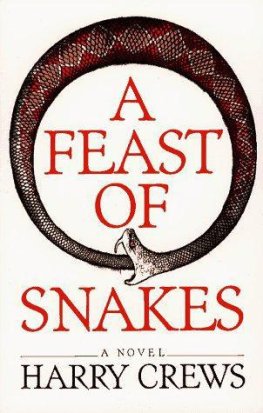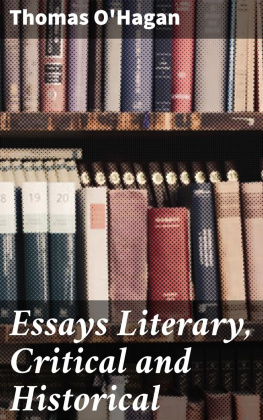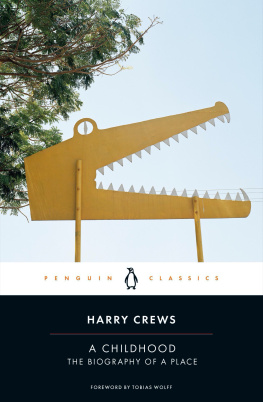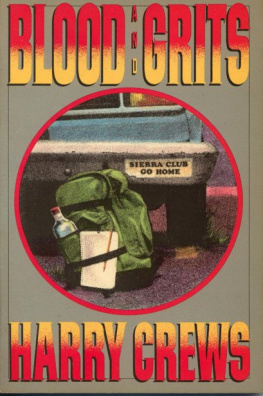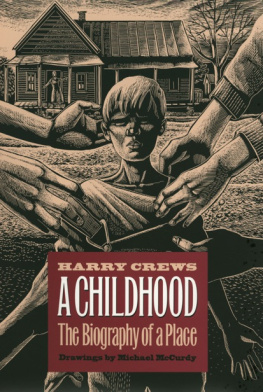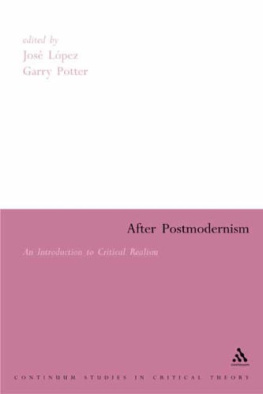Perspectives on HARRY CREWS
Perspectives on HARRY CREWS
Edited by
Erik Bledsoe

www.upress.state.ms.us
Copyright 2001 by University Press of Mississippi
The following articles were first published in The Southern Quarterly and are used by permission: Harry Crews: Mentor and Friend by Larry Brown; Is Your Novel Worth a Damn?: Meeting Harry Crews by Tim McLaurin; The Use of I, Lovely and Terrifying Word: Autobiographical Authority and the Representations of Redneck Masculinity in A Childhood by James H. Watkins; Silences, Criticisms, and Laments: The Political Implications of Harry Crewss Work by Gary L. Long; Everthing Is Eating Everthing Else: The Naturalistic Impulse in Harry Crewss A Feast of Snakes by Tim Edwards; Having a Hard Time of It: Women in the Novels of Harry Crews by Elise S. Lake; Harry Crewss Home Place: An Excursion into Wiregrass Country and the Carnivalesque by Jerrilyn McGregory; Harry Crewss Away Games: Home and Sport in A Feast of Snakes and Body by Scott Romine; An Interview with Harry Crews by Erik Bledsoe; Assault of Memory by Harry Crews; and Keeping Up with Harry Crews: A Bibliography of Works, Interviews, and Critical Texts by Damon Sauve; all copyright 1998 by The Southern Quarterly; and The Grit migr in Harry Crewss Fiction by Matthew Guinn copyright 1999 by The Southern Quarterly.
All rights reserved
Manufactured in the United States of America
09 08 07 06 05 04 03 02 01 4 3 2 1

Library of Congress Cataloging-in-Publication Data
Perspectives on Harry Crews / edited by Erik Bledsoe.
p. cm.
Includes bibliographical references and index.
ISBN 1-57806-32I-3 (alk. paper)ISBN I-57806-322-I (pbk. : alk. paper)
I. Crews, Harry, 1935. Criticism and interpretation. 2. Southern StatesIn literature. 3. Rural poor in literature. 4. Whites in literature. I. Bledsoe, Erik, 1965
PS3553.R46 Z84 2001
8I3.54dc21
00-044912
British Library Cataloging-in-Publication Data available
BOOKS BY HARRY CREWS
All We Need of Hell
Blood and Grits
Body Car
Celebration
A Childhood: The Biography of a Place
Classic Crews: A Harry Crews Reader
The Enthusiast
A Feast of Snakes
Florida Frenzy
Getting Naked with Harry Crews: Interviews (edited by Erik Bledsoe)
The Gospel Singer
The Gypsys Curse
The Hawk Is Dying
Karate Is a Thing of the Spirit
The Knockout Artist
Madonna at Ringside
The Mulching of America
Naked in Garden Hills
Scar Lover
This Thing Dont Lead to Heaven
2 by Crews
Where Does One Go When Theres No Place Left to Go?
CONTENTS
Larry Brown
Tim McLaurin
James H. Watkins
Richard Rankin Russell
Gary L. Long
Tim Edwards
Elise S. Lake
Jerrilyn McGregory
Matthew Guinn
Scott Romine
Nicholas Spencer
Erik Bledsoc
Harry Crews
Damon Sauve
INTRODUCTION
Recently I was renewing a couple of overdue Harry Crews novels at my university library. When she saw the books, the librarian tentatively asked if I had read A Feast of Snakes. When I replied that I had, she smiled and began talking enthusiastically about the novel. From there we went to A Childhood: The Biography of a Place, and then on to other Crews novels she admired. Our discussion continued for a few minutes, it being a slow day at the library, and as I was packing up my bag and preparing to leave she said, Its not every day that you meet a fellow Crews fan.
I tell this story because it exemplifies one of the three typical responses I received from people when I would mention that I was working on a Harry Crews project. Often, too often, I was met with blank stares. Despite having published fifteen novels, two collections of nonfiction, an autobiography that ranks among the best works to emerge from the South in the last twenty-five years, and various other limited editions and collections, Harry Crews is not very well known outside of a limited circle. As he told me, his novels typically sell fewer than ten thousand copies in hardback. Respectable, enviable even to many writers, but certainly not indicative of his power as a writer, nor of his influence upon other writers.
If the blank stares were sometimes frustrating, often enough I received responses like that of the librarian. I quickly learned that Crews has a devoted and passionate following. After putting out a call for papers I received phone calls, letters, and e-mail from people all across the United States and even a few from Europe. Some people had no intention of submitting anythingthey just wanted to talk. And talk they did. They talked about Joe Lon Mackey, about the grittiness of Crewss novels and essays, about the freaks and midgets that populate his literary world. Some had been his students at the University of Florida where he taught for many years, and they talked about how he had challenged them to make their own writing honest. On a few occasions people expressed an aversion as intense as the admiration others expressed. Of those who know him or his work few seem indifferent. You either love Crews or you hate himsometimes, as with at least one person with whom I spoke, you do both at once.
Finally, and this response usually, though not always, came from those who had met Crews, there were the stories. Stories of drunkenness, of outrageous comments made and deeds performed, of an e. e. cummings poem tattooed on his arm and a Mohawk hairdo, stories of Harry Crews: The Legend as Ive come to call it.
Did you hear about the time when he ?
One time Harry and Barry Hannah
I saw Harry give a reading when he was so
Crews has the reputation of being the baddest bad boy of American letters. It is a reputation that is both deserved and, as with all such reputations, a reputation that inevitably has taken on a life and magnitude of its own, sometimes bearing little resemblance to the truth.
Certainly, this reputation accounts for some of Crewss cult following. A certain segment of the population finds in Crewss novels and works of nonfiction a representation of the life to which they aspirea life lived on the edge, hard and fast, no bullshit passed out and none tolerated in return. Similar to the way an earlier generation tossed worn copies paperback copies of Kerouac novels in the backseat and careened off across the country, some folks carry around well-worn copies of Crewss books. It is not surprising that Harry Crews was once asked to adapt On the Road for the big screen.
In recent years, however, some readers have discovered Crews by working backward as it were. With the critical and popular success of younger writers like Larry Brown and Dorothy Allison many readers and critics have returned to Crews, who was writing about what documentary filmmaker Gary Hawkings has called the Rough South for twenty years before Brown and Allisons first published fiction. The Rough South is the world of the poor white, far removed from the grandeur of Tara and
Next page

